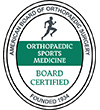The 4 Stages of Frozen Shoulder
The four stages of frozen shoulder include pre-freezing, freezing, frozen, and thawing. These terms describe the typical progression of the condition from early symptoms to recovery.
9 Home Remedies for Knee Pain
As you may be painfully aware, knee pain is very common. Global estimates suggest that more than 1 in 5 adults age 40 and over experience this type of joint problem, and knee pain in men and women in the United States increases steadily after age 60. Here are some of the best home-based ways to help your knees feel and function better.
Butt Bruise: Treatment and Healing
A butt bruise occurs from direct trauma to the gluteal muscles of the buttocks. Forceful impact on a muscle causes damage to underlying blood vessels, muscle fibers, and sometimes bone resulting in bleeding underneath the skin.
Causes of Pain Between the Shoulder Blades
Upper back pain between the shoulder blades has many causes, including muscle strain, herniated discs, arthritis, or, less often, a serious health problem. Treatment for pain between the shoulder blades depends on the cause but frequently includes stretching and medications for pain.
‘Don’t push into pain!’ How to rescue your knees from everything from torn ligaments to injured tendons
From runner’s knee to fraying cartilage, knees are involved in 40% of sports injuries. But it can be hard to pin down what’s wrong, or what to do about it. Just because knee issues are common, that doesn’t mean we should ignore them and soldier on.
Electrolytes can give the body a charge, but try not to overdo it
Research on electrolyte supplementation is mostly aimed at athletes, she said. Some sources say that water is fine for anyone in an activity that lasts less than an hour; some say even more activity is needed before anything beyond water is helpful.
From Surgery to Sports: ACL Reconstruction Recovery Explained
An ACL rupture (complete tear) is often treated with reconstruction surgery, in which the torn ligament is rebuilt with new tissue. This can also offer a lifeline when nonsurgical treatment fails, allowing people to return to their favorite sports and activities. In this article, we’ll explore what ACL reconstruction is, the phases of recovery, and red flags that could be a sign of surgery complications.
Obesity associated with increased complications after arthroscopic rotator cuff repair
Despite similar pain and function scores, patients who were obese and underwent arthroscopic rotator cuff repair had increased rates of complications, readmissions and reoperations vs. non-obese patients, published results showed.
Should You Worry About Joints Cracking or Popping?
Cracking and popping joints, medically known as crepitus, are normal. Joints are points in your body where two bones meet. You might occasionally hear your knees popping or notice your back or bones crack as you move them.
What is tendon rupture?
A tendon rupture is a break in a tendon, the structure that joins a muscle to a bone. It can result from overuse, an injury, or an underlying condition.





